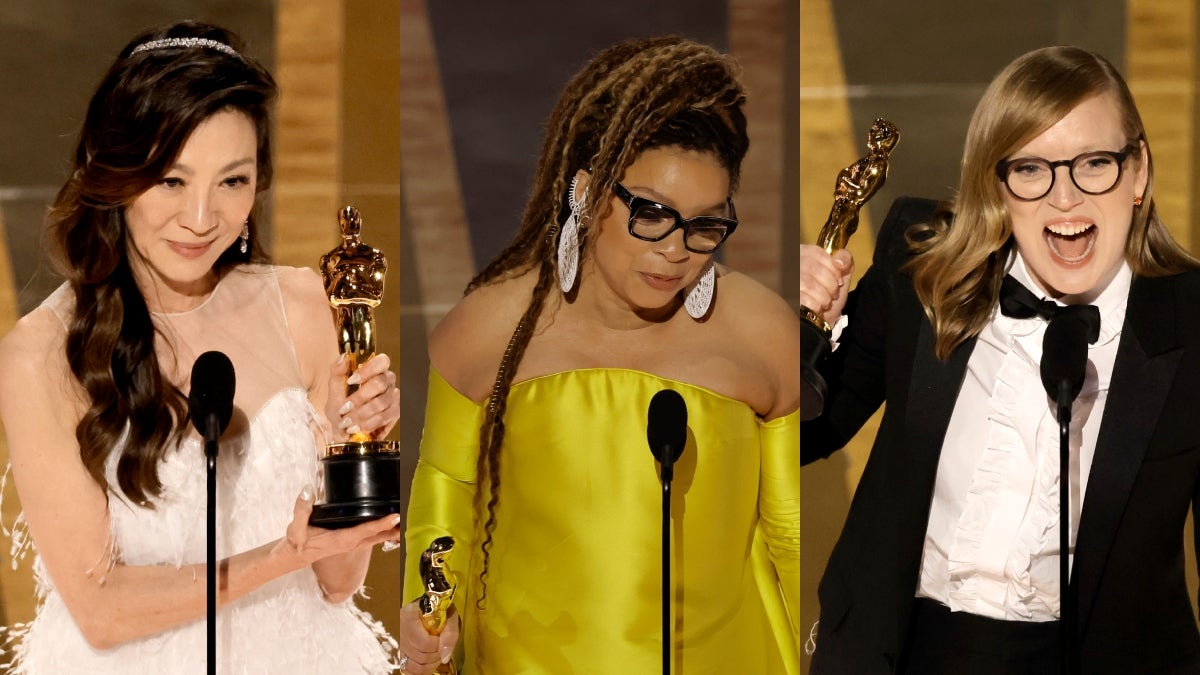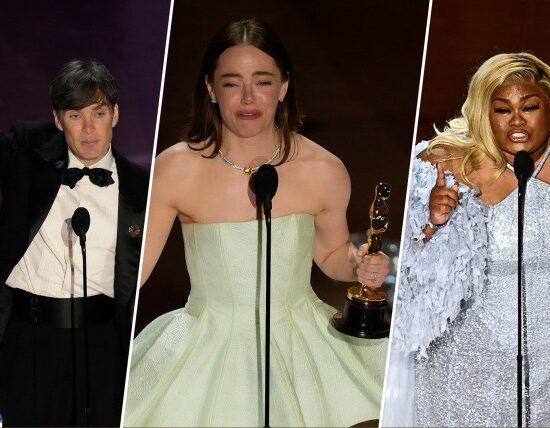
This year’s Academy Awards have come and gone and representation remained a hot-button topic. Actress Ariana DeBose and “CODA” Oscar winner Troy Kotsur celebrated inclusivity — in spite of the fact that no Deaf or disabled nominees were included this year — while actors Michael B. Jordan, Jonathan Majors, and costume designer Ruth Carter honored fellow Oscar nominee Angela Bassett in a year where the lack of Black female nominees was on everyone’s mind. And in terms of overall female representation, this year’s Oscars was down versus last year.
History was certainly made Sunday night across numerous spectrums, however.
Actress Michelle Yeoh became the first Asian woman to win Best Actress, while costumer Ruth E. Carter marked only the second time a Black woman has won Best Costume Design, or twice in any category. Daniel Kwan, one half of the directing and writing duo for “Everything Everywhere All at Once,” became the fourth Asian artist to win Best Director. Kwan’s three Oscars (for Best Picture, Director and Original Screenplay) comprise three of the 11 wins by nominees of color.
This year’s Asian representation, particularly in the acting categories, was the highest in Academy Awards history, with the most nominations since 2004. In addition to “Everything Everywhere”s Yeoh, Kwan, and Ke Huy Quan, Judy Chin’s make-up and hairstyling award for “The Whale” brought the total of East Asian winners to four. All four South Asian nominees – the songwriting duo behind “Naatu Naatu” and “The Elephant Whisperers” producers – won their categories.
But of the 101 individual categories at this year’s Oscars, only 19 nominees were people of color. That’s only 18% of the nominations. Yet they only account for less than 6% of the wins.
Black nominees only account for 7% of the individual nominees, though ended up securing only one win, for the aforementioned Ruth Carter. Angela Bassett for “Wakanda Forever” and Brian Tyree Henry for “Causeway” were the only Black acting nominees, leaving Black performers to account for less than 2% of the nominees. Compared to last year, which had 13 nominations for Black talent, this year saw only seven, marking an 85% decrease from the year prior.
And then there was the complete lack of women in Best Directing, in spite of Sarah Polley securing the Best Adapted Screenplay Award for “Women Talking,” which was nominated for a Best Picture. This makes for the first year that women have won Best Adapted Screenplay category two years in a row, following Sian Heder for “CODA.”
Also, all of the costume nominees this year were women, and each film nominated for production design included at least one female nominee. But history could have been made tonight if Mandy Walker had won for Best Cinematography for “Elvis”; she’d have been the first woman to win. That award went to James Friend for “All Quiet on the Western Front.” This marked the third time — and third loss — for a woman in Best Cinematography. Women still only make up 3% of Best Cinematography nominations in the Oscars history.
Last year was the worst showing for women nominees in four years, with them winning 23% of the categories in which they were nominated. This year they actually fared worse, with only nine wins out of 57 nominations. Women only secured 15% of the wins this year.
That being said, to hear Ke Huy Quan and Michelle Yeoh call out the industry for the lack of opportunities they’ve received only emphasized the continuing need for diverse nominees. What can be done to fix that? The jury’s still out, but we have a whole year to hope next year’s Oscars will show signs of improvement.















